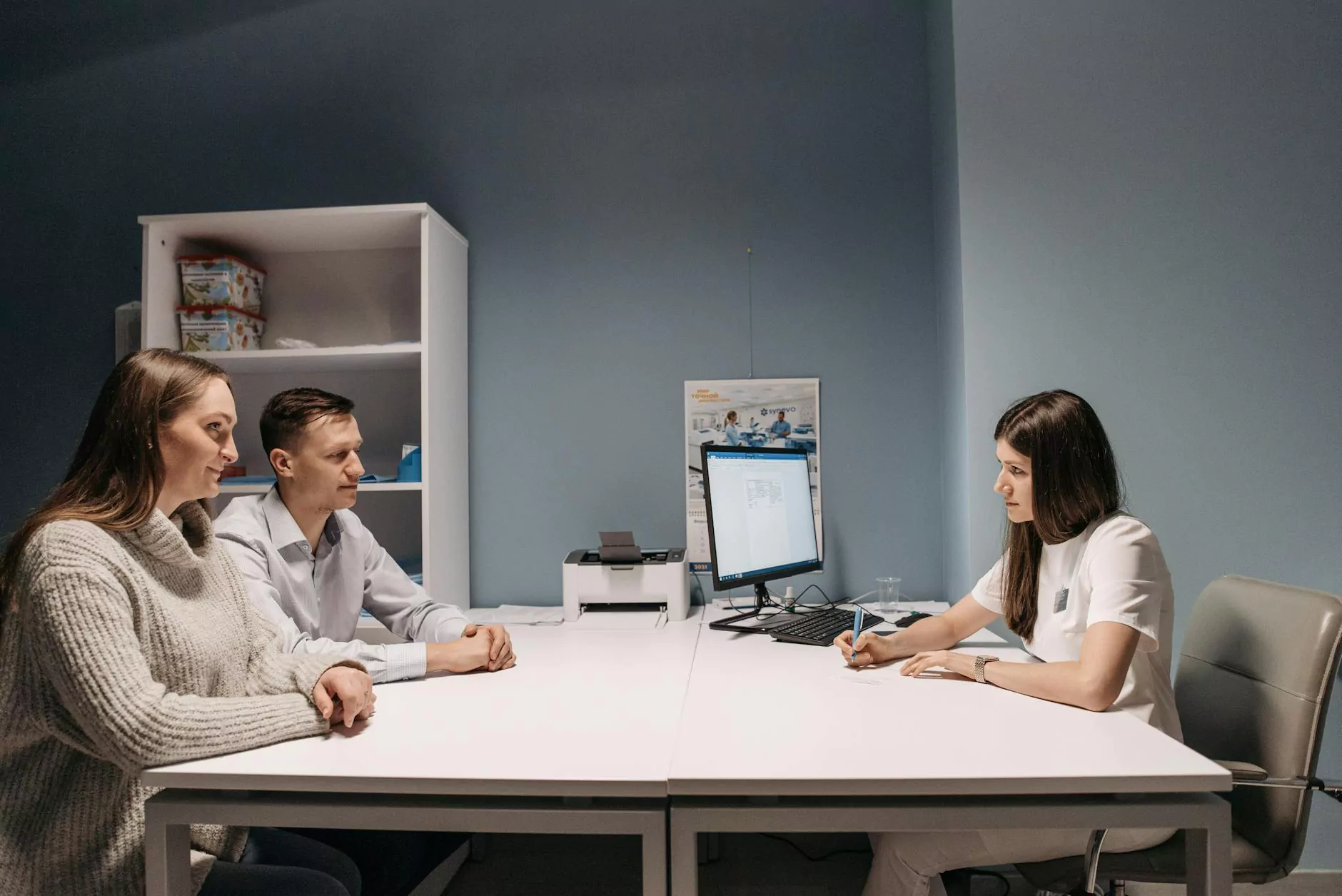Effective Therapies for Anxiety: A Comprehensive Guide to Mental Wellness with Limbic Flow

In today's fast-paced world, anxiety has become a prevalent mental health concern impacting millions of individuals worldwide. Understanding and addressing therapies for anxiety is essential for reclaiming mental wellness and fostering a balanced, fulfilling life. Limbic Flow, a leading provider in the realm of Counseling & Mental Health, specializes in evidence-based approaches to alleviate anxiety through innovative, compassionate, and tailored therapies. This comprehensive guide aims to explore the array of therapies for anxiety available, emphasizing their scientific validity, practical applications, and transformative potential.
Understanding Anxiety: Causes and Manifestations
Anxiety is a complex psychological and physiological response characterized by feelings of worry, fear, apprehension, and sometimes physical symptoms such as rapid heartbeat, sweating, and trembling. It can manifest in various forms, including Generalized Anxiety Disorder (GAD), Panic Disorder, Social Anxiety Disorder, and Specific Phobias.
Multiple factors contribute to the development of anxiety, including genetic predispositions, environmental influences, trauma history, and neurochemical imbalances. Recognizing these causes is pivotal for selecting the most appropriate and effective therapies for anxiety.
The Importance of Evidence-Based Therapies in Managing Anxiety
When seeking treatment, it’s crucial to prioritize evidence-based approaches rigorously tested for efficacy. The landscape of therapies for anxiety has evolved significantly, integrating traditional psychological practices with cutting-edge neurobiological insights. Some therapies focus on altering thought patterns, while others modify brain activity or stress responses in foundational ways.
Top Evidence-Based Therapies for Anxiety
1. Cognitive-Behavioral Therapy (CBT)
Cognitive-Behavioral Therapy remains the gold standard in treating anxiety disorders due to its proven effectiveness. CBT focuses on identifying, challenging, and ultimately reshaping dysfunctional thought patterns that sustain anxiety. It also incorporates exposure techniques to confront fears gradually, reducing avoidance behaviors that reinforce anxiety.
- Core Components: Cognitive restructuring, exposure therapy, skill development.
- Benefits: Long-lasting relief, high success rates, adaptable to individual needs.
- Why It Works: Changes neural pathways associated with fear responses, strengthens coping mechanisms.
2. Mindfulness-Based Therapies
Mindfulness practices have gained widespread recognition for their role in reducing anxiety. These therapies cultivate present-moment awareness and acceptance, helping individuals disengage from ruminative thoughts and catastrophic predictions.
- Types: Mindfulness-Based Stress Reduction (MBSR), Mindfulness-Based Cognitive Therapy (MBCT).
- Mechanism: Modulating the brain’s default mode network, decreasing activity in the amygdala, and enhancing prefrontal cortex regulation.
- Advantages: Accessible, scalable, and applicable in daily life.
3. Acceptance and Commitment Therapy (ACT)
ACT emphasizes accepting unwanted thoughts and feelings rather than striving to eliminate them, promoting psychological flexibility. It encourages individuals to commit to actions aligned with their core values despite experiencing anxiety.
- Core Concepts: Mindfulness, acceptance, values clarification, committed action.
- Effectiveness: Proven to decrease avoidance behaviors that perpetuate anxiety.
- Ideal For: Those seeking a holistic approach aligned with personal values.
4. Neurofeedback and Biofeedback
Advanced neurotechnologies like neurofeedback and biofeedback provide real-time feedback on physiological functions such as brainwaves, heart rate, and muscle tension. Participants learn to regulate these functions, leading to reduced anxiety symptoms.
- Process: Training in self-regulation of neural activity.
- Benefits: Empowers individuals with practical tools for immediate calming responses.
- Research Support: Growing body of studies validating their efficacy.
5. Pharmacological Interventions
While therapy is often the first-line treatment, medications such as selective serotonin reuptake inhibitors (SSRIs) and benzodiazepines are viable options, especially for severe cases. Collaboration with mental health professionals ensures pharmacological treatments complement therapeutic approaches effectively.
Integrating Therapies for Optimal Anxiety Management
Most effective treatment plans involve a combination of therapies tailored to individual needs. For example, integrating Cognitive-Behavioral Therapy with mindfulness techniques can enhance coping skills and resilience. Additionally, combining neurofeedback with traditional talk therapies may deliver superior outcomes by addressing both psychological and neurobiological aspects of anxiety.
Practical Strategies to Support Your Journey
Establish a Supportive Environment
Surround yourself with understanding and empathetic individuals who support your mental health goals. Engage in community groups, support networks, or online forums dedicated to anxiety management.
Develop a Consistent Routine
Structure your daily life with regular sleep patterns, healthy eating, and physical activity. Routine fosters stability, reducing the unpredictability that often exacerbates anxiety.
Practice Mindfulness and Relaxation Techniques
Incorporate yoga, deep breathing exercises, progressive muscle relaxation, and meditation into your routine to activate your parasympathetic nervous system and facilitate calmness.
Seek Professional Guidance
Partnering with qualified mental health professionals at Limbic Flow ensures personalized, evidence-based therapies for anxiety tailored to your unique circumstances. Professional support accelerates healing, provides accountability, and introduces new strategies for enduring change.
The Role of Limbic Flow in Providing Effective Therapies for Anxiety
At Limbic Flow, our focus lies in harnessing the latest scientific research and neuropsychological insights to deliver innovative therapies for anxiety. Our approach integrates traditional psychotherapy with neurofeedback, mindfulness, and personalized counseling to produce comprehensive mental health solutions.
Our dedicated team of clinicians and therapists is committed to offering a safe and supportive environment where clients can explore their fears, develop resilience, and achieve long-term mental wellness. We believe that every individual deserves tailored care rooted in empathy and scientific rigor.
Conclusion: Your Path to a Calm Mind Starts Here
Effective management of anxiety involves understanding its roots, embracing evidence-based therapies for anxiety, and committing to a journey of self-discovery and healing. Whether through Cognitive-Behavioral Therapy, mindfulness practices, neurofeedback, or combined approaches, personalized treatment at Limbic Flow empowers individuals to reclaim their lives from anxiety’s grip.
Remember, recovery is a process, and seeking professional help is a crucial step toward lasting mental wellness. Our expert team is here to guide you at every stage—because a calmer, more resilient mind is within reach.
Take Action Today
For those ready to transform their lives and find relief from anxiety, contact Limbic Flow today to explore customized therapy programs designed to meet your unique needs. Your journey to serenity and mental clarity begins now.









